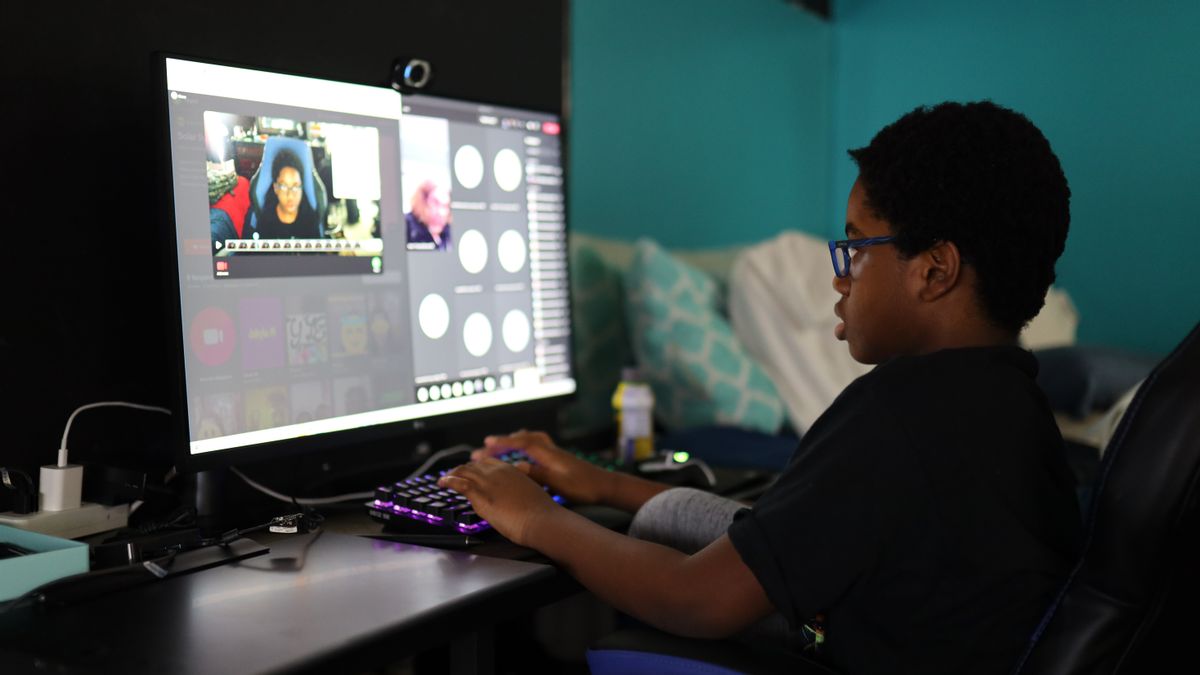The Toilet Skibidic syndrome is becoming a trend among children and teenagers. But parents need to be vigilant because this syndrome is claimed to have potential harm for children who imitate it.
The Skibidi Toilet syndrome suddenly went viral over the past week after a lot of video footage showing a child imitating extreme scenes in the game. The video became trending on TikTok and YouTube social media.
Quoted from various sources, Toilet Skibidy is a mode in video games whose origin is not yet clear. However, this game mode was created not officially from game developers. Toilet skibidies first emerged as a mode that can be used as an alternative to players playing Minecraft video games. Minecraft itself is one of the most popular games for children and they can try various types of modes in the game, one of which is Skibidi Toilet.
Nowadays, many children are imitating the animated movement and uploaded to social media. Starting from squatting, head dancing, while singing strange songs from Toilet Skibidies. In some videos, children can even be seen in cardboard, large drums, and trash cans.
The current rise in the use of social media is one of the results of technological advances. Indeed, in today's digital era, it is difficult to ignore technology. Humans are so spoiled thanks to the presence of technology that provides various benefits ranging from easy access to information and communication, accelerating production and service services, and others.
But on the other hand, technological advances are like a double-edged knife, because there are also negative impacts that accompany it. The spread of hoax information, hate speech, provocation, terrorism, pornography, and gambling are among the negative impacts of technology. It's a shame, because today's technology seems inseparable from life, including children.
According to a report from We Are Social, until January 2023, the number of active social media users in Indonesia reached 167 million people. This number is equivalent to 78 percent of the total number of internet users in the country which reaches 212.9 million. Indonesia ranks 10th in a country with a duration of playing social media in the world. The time spent playing social media in Indonesia reaches 3 hours 18 minutes every day. In addition, the average Indonesian people use the internet for 7 hours 42 minutes per day.
The phenomenon of online gaming addiction among children and adolescents in Indonesia has become an issue that has been discussed in recent years. In 2018 the World Health Organization (WHO) has even designated online addiction as a form of mental disorder and is called the term siming disorder. This includes the category of non-defect addiction or behavioral addiction, as well as gadget addiction, online gambling, social media, pornography, and others.
The negative impact of online addiction seems to have been felt by China. The local government has stepped in to take extreme steps by limiting game playing hours for minors. Quoted from the Chinese authorities, the Chinese authorities must control how long children can play online as an effort to fight addiction to the internet.
In 2019, the government issued regulations for children to only play online for 90 minutes during weekday and ban them from playing between 10pm and 8am. Then in 2021, they made a tougher ban, that children were only allowed to play online for an hour a day and only Friday, weekend, and national holidays.
More than a year after the online gametime restrictions were introduced, the Chinese government affiliated with Game Industry Group Committee issued a report that the online game addiction problem in children "has basically been resolved". Overall, the Game Industry Group report says more than 75 percent of China's children play online games for less than three hours a week and most parents express their satisfaction with this restriction.
Still quoted fromAP, a report by gaming market intelligence firm Niko Partners, in September found that the number of young gamers fell to 82.6 million in 2022 from 122 million in 2020, thanks to regulations on restrictions on online gaming.
What is shown in the Toilet Skibidy does not have the benefits of education for children. In terms of language, the language shown has no meaning. In terms of visual terms, it is also not good, so watching this type of Toilet Skibidy animation is just a waste of time, even though children need time to play.
But as previously stated, online social media and extortion can actually be a learning arena for children, as long as parents meet a number of provisions so that they are not exposed to negative content in them, such as the current viral Toilet Skibi syndrome phenomenon. One thing that must be considered is that parents cannot turn a blind eye to technological advances. Parents must learn so they don't miss out.
"Children are basically great impersonators, they learn various things. To avoid being addicted to the internet, parents should need to prepare themselves for indecent content attacks. Parents must be with their children, for example when they are studying, watching, so that children become more technical," said psychologist Tika Bisono.
SEE ALSO:
The issue of gadget addiction has actually also caught the attention of Microsoft founder Bill Gates. He forbade his children to have their own cell phones until they felt they were quite old. Quoted by the Mirror, Bill Gates only allowed his three children to have cell phones after they were 14 years old and that was also limited.
"We didn't use our cellphones while we were eating, we didn't give children cellphones until they were 14 years old and they protested because other kids had already got them," said Bill Gates.
There is no doubt that gadgets are one of the basic needs. Even now, the teaching and learning process in schools is already common using gadgets. That's why it takes the wisdom of parents to continue to assist children to avoid being addicted to devices and avoid negative content that is easily accessible by accessing the internet.
The English, Chinese, Japanese, Arabic, and French versions are automatically generated by the AI. So there may still be inaccuracies in translating, please always see Indonesian as our main language. (system supported by DigitalSiber.id)

















